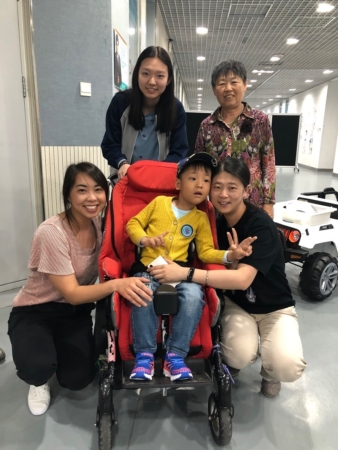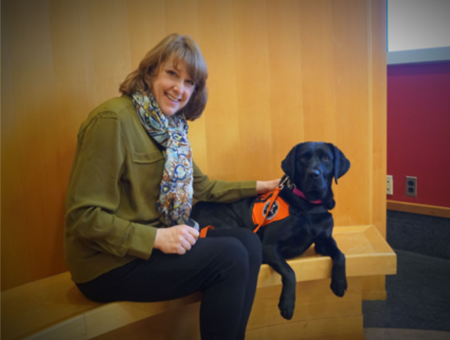Occupational Therapy Doctoral Program to Bring Services to Marginalized Populations
New Degree Program Will Offer Students Novel Fieldwork Opportunities
Their occupational therapy clinical experiences might include working with inmates, homeless people, adolescents at risk, or children with disabilities.
Under Program Director Sandra Rogers, students in the Rutgers School of Health Professions Occupational Therapy Doctoral program opening in September will have novel fieldwork opportunities in both community-based and global health settings.
“What’s really distinctive is our focus on expanding our practice into areas where occupational therapy services should be, but aren’t,” said Rogers.
Rogers, who has researched and written extensively about the need for OT in the criminal justice system and who has traveled to China to work with children with disabilities, is using her own experiences to make community connections and widen opportunities for students to work with underserved populations.
“Very few organizations have the expertise or access to provide those services,” she said. “Our faculty will be supervising students in areas where they have extensive expertise.”
One of those faculty members is Sharon Gutman, noted in the field for her research and work with the homeless population. She is building relationships with Newark non-profits that will make it possible for students to provide occupational therapy services to people with serious mental health issues, and who may be homeless, supporting their transition to housing, employment and managing their everyday life.
With Rutgers holding contracts to provide behavioral health services in four prisons in New Jersey, Rogers is also establishing opportunities for students to be trained to provide improved pre- and post-release support for people who are incarcerated.
“We will work on things like financial management, understanding how to do an interview, parenting skills and conflict negotiations,” she said, “They need to think about how to construct their everyday life, have opportunities to practice these skills and set goals for themselves.”
She is also creating clinical experiences abroad for students, once the pandemic allows for safe travel. She has spent a decade working with disabled children abandoned by their families in Chinese orphanages. At the time, she was a professor at an Oregon university.

OTD student Jen in China with a family whose child received a ride-on car through Go Baby Go, a program that provides toy cars to young children with disabilities to provide them more mobility.
“I was invited to go to an orphanage, by a nonprofit organization to train the caregivers,” she said. “It became an opportunity for my students to go with me and do some training. And I have every intention of continuing that work at Rutgers”.
“Students will not just be helping one child, but the system – they’ll improve the outlook for all children, even in small ways. The experience helps them to understand and appreciate their own education and appreciate the differences between health care systems.’

Sandra Rogers and Sophie, her hearing dog.
Roger’s own disability – she is hearing impaired- has given her a unique perspective in working with people with disabilities. She said it has made her more aware of the challenges faced by those who are disabled. She uses Bluetooth technology to speak by telephone and has a hearing dog.
“Having any kind of disability, especially an invisible one, is really helpful in making you empathetic toward anybody with a disability,” she said. “I have had first-hand experience of what it’s like to be marginalized because of your disability. It helps you recognize the importance of advocacy not just for yourself, but for health care and in political and social sectors.”
Rogers is excited to be leading a program that will offer students leadership, research opportunities and advocacy, while addressing health disparities among underserved populations.
“We hope it is going to target the underserved and unserved populations and to have an impact in Newark, partnering with organizations already doing some of that work, and expanding and broadening the services they provide,” she said.